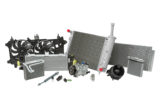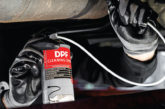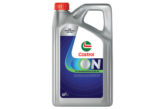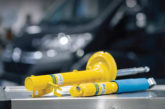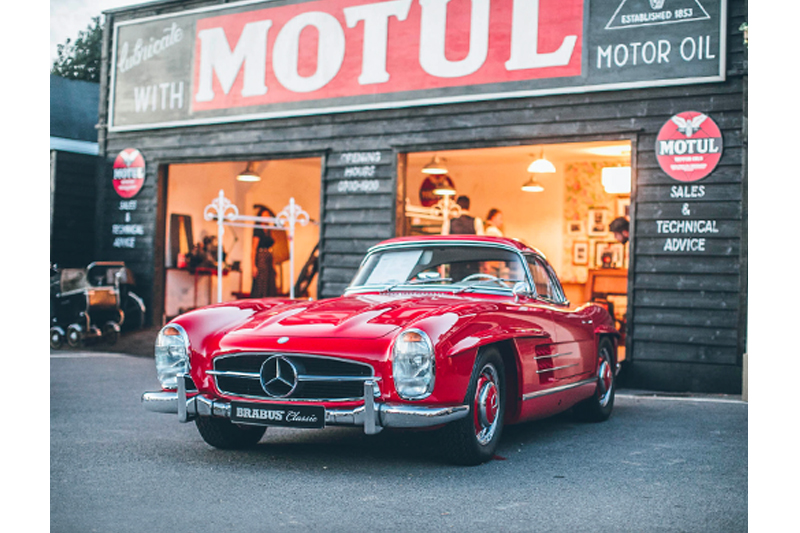
Motul is more than 150 years old, so it’ll come as no surprise that it sees the classic car market as an area with increasing opportunity. From “youngtimers” to older cars, the lubricant company tells PMM readers how garages can take advantage of this growing market.
The constant growth of the classic car sector and its absorption of the increasingly popular “youngtimer” period — cars from the ‘80s ‘90s and even noughties — means that more and more historic vehicles are on the roads, presenting real and growing opportunities for garage workshops.
There have been major steps forward in engine development since the dawn of the motor vehicle and so the oils that help keep them running smoothly and efficiently have also developed. The net effect of this is that if your work brings you into contact with classic cars or even what are described as “youngtimer” vehicles, the latest crop of engine oils might well not be the best option for them. Oil companies have therefore developed ranges of lubricants specifically to deal with engines of vintages, and these in turn offer opportunities for workshops both for increased customer satisfaction and increased revenue.
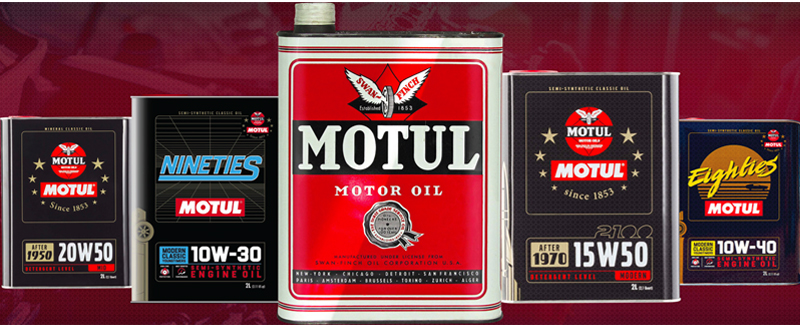
Specialised range
Fifteen years ago, Motul launched a specialised classic oil range. These dedicated products have been developed with detergent levels that are adapted to better suit old engines and, where necessary, include additives to prevent potential problems from these older units, as well as promote optimal running. The ranges cover everything from pre-war vehicles to “youngtimers” or future classics. These cars have become available to enthusiasts at a lower level of investment compared to earlier vehicles and, in turn, have become increasingly collectable.
The market is estimated at almost 10 million cars, of which there are hundreds of thousands of in the UK. They are driven for fun, with passion, and by owners with an interest in collecting them – especially sport or premium/limited edition models.
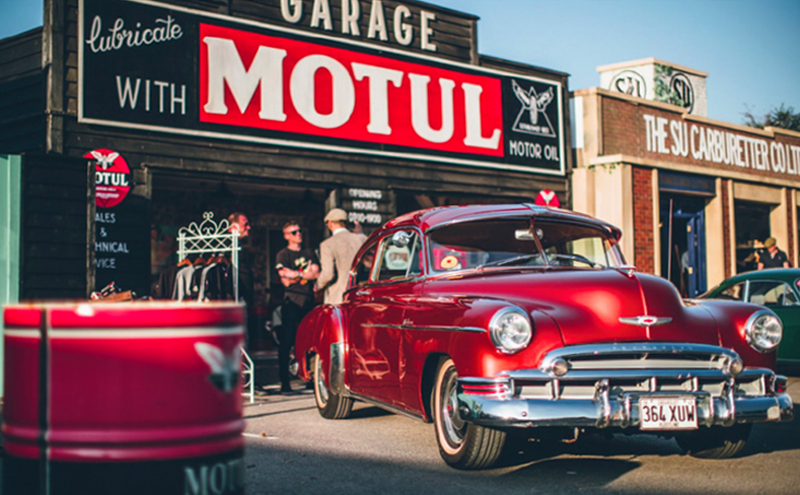
So, when dealing with lubricants for an historic vehicle, there are now lubricant options suited to whatever rolls into the workshop, all using modern technology to help older cars to work as they should. Motul split its classic motor oils into the following specifications of oil – all of which come in tin packs, which help visually differentiate them from modern oils.
The key characteristics of each oil are designed to tie in with the specific requirements of engines of their period. So, using the Motul range as an example, what follows will give an idea of what key points to look out for with use with classics of specific eras:
Older cars
1900s-1950s SAE30 and SAE50: Mineral monograde lubricant with very low detergent level for a complete compatibility with paper, felt or fabric gaskets.
1950s-1970s Classic oil 20W50: Mineral multigrade lubricant with mid-level detergents, compatible with engines which have elastomer gaskets.
The 20W50 oil meets standards of the 1950 – 1970 period (API SF/CC) while benefiting from modern technology. Its viscosity is suited to engines with narrow running clearances, due to significant progress at the time in metallurgy, casting and machining. Good anticorrosion and anti-wear properties.
1960s Classic oil 2100 15W-50: In 1966, Motul produced 2100, which was the first semi-synthetic lubricant in the automotive market. This is an updated version of that semi-synthetic oil, now developed for naturally aspirated and turbocharged original engines built after 1970.
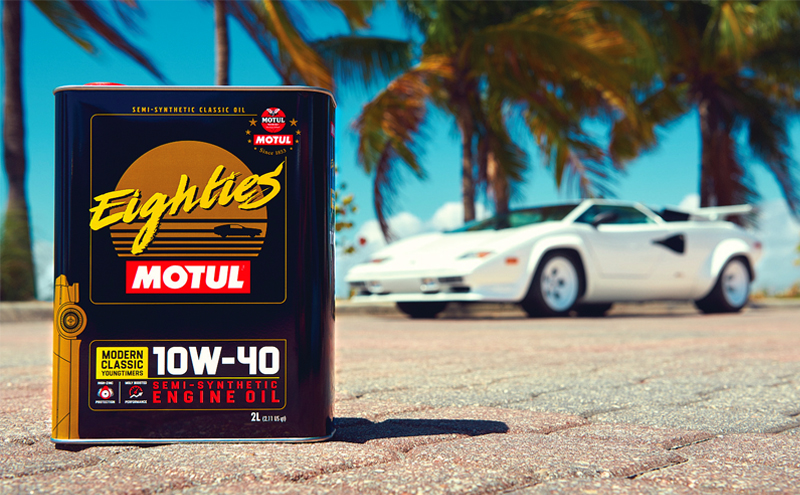
Classic eighties 10W-40 and classic nineties 10W-30: Semi-synthetic multigrade engine oils specially designed for modern classic and youngtimer vehicles from the 1970s, 1980s, and 1990s fitted with four-stroke engines, either petrol or diesel – naturally aspirated, supercharged or turbocharged, injection or carburettor. These two engine oils claim to deliver protection and optimum functionality for classic and vintage engines.
Other lubricants
Engine oils provide the central requirement for historic vehicle lubrication, but there are many other lubricant and fluid requirements for both classics and youngtimers, just as with modern cars. Motul has therefore taken the opportunity to extend its classic range to include coolants, cleaners and vehicle care products, which, like the engine oils, are designed specifically for the maintenance and care of classic cars and offer further opportunity to deliver the optimum product to their owners and extend the upsell as related work.
The time of year
Classics are not always going to be their owners’ daily drive. The better weather of summer make these prime periods for classic car owners to be using their cars.
Many classic vehicle owners will then look to lay up their vehicles for the winter as autumn progresses and offering the opportunity of a workshop service before this time could also prove appealing, so that cars go into “hibernation” in optimum condition. It is worth noting that the additives packages in the classic and youngtimer oils also bring long-term storage protection during those periods when driving for fun just isn’t possible. So, targeting owners during these periods could pay dividends.
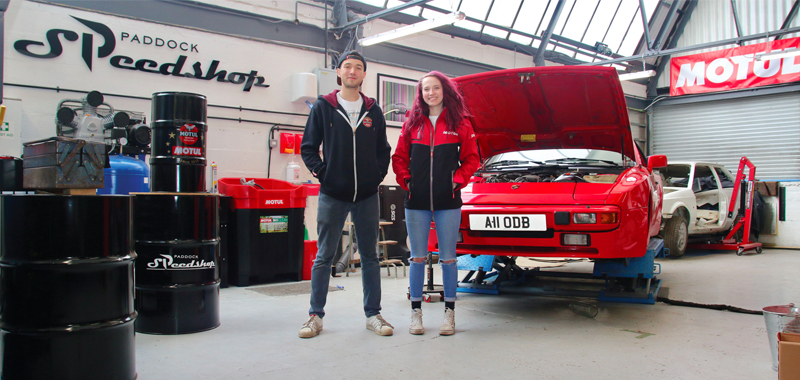
Motul’s involvement
Motul believes that if you talk the talk you have to walk the walk, so it puts a great deal of time and resource into truly being part of the classic car sector. It is a valued partner to many events, clubs and organisations.
Therefore, the company are involved in some of the world’s greatest classic vehicle events – from the Silverstone Classic and Classic Le Mans, The Classic Car and Restoration Show all the way to the Goodwood Revival and it is also the official lubricant partner of The Federation of British Historic Vehicle Clubs.


